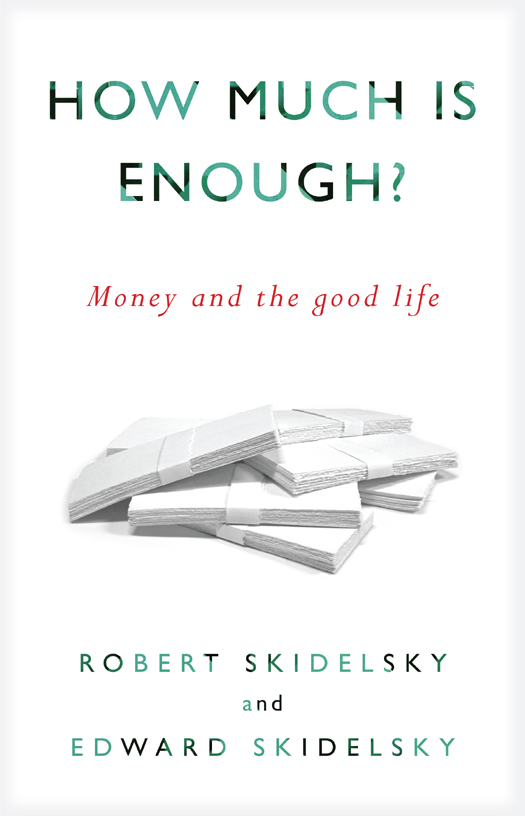
How Much is Enough?
Money and the Good Life
کتاب های مرتبط
- اطلاعات
- نقد و بررسی
- دیدگاه کاربران
نقد و بررسی

April 30, 2012
In the wake of the financial crisis of 2008 and a continued period of global economic unrest, the Skidelskys, a father-son team composed of University of Warwick emeritus professor of political economy Robert (Keynes: The Return of the Master) and Exeter University lecturer Edward (Ernst Cassirer: The Last Philosopher of Culture), tackle age-old questions regarding the relationship between wealth, happiness, and satisfaction in this enlightening read. While the book’s scholarly tone and laborious construction may not appeal to the casual reader, the questions posed and the research and conclusions presented are timely, relevant, and thought provoking. The authors begin by disputing economist John Maynard Keynes’s 1930 prediction that as per capita income rose and basic needs were met, leisure and free time would increase. In fact, they point out, in modern times, though our income has risen, we work harder than ever, have less leisure than in previous eras, and have less happiness and satisfaction in our lives. The authors turn to historical fiction, philosophy, and political theory, drawing on Faust, Marx’s critique of capitalism, and Aristotle’s uses of wealth. Their conclusion that concepts like respect, friendship, and community are more likely to contribute to satisfaction and overall happiness than wealth makes for a fascinating, if cerebral, read. Agent: Peter Matson, Sterling Lord Literistic.

June 1, 2012
A provocative and articulate discourse on the dismal science and moral philosophy. Eminent economic historian Robert Skidelsky (Political Economy Emeritus/Univ. of Warwick; Keynes: The Return of the Master, 2009, etc.) and his philosopher son Edward (Moral and Political Philosophy/Exeter Univ.) recall when John Maynard Keynes predicted that, in his grandchildren's days, no one would need to work much more than a few hours a week to satisfy our shared human needs. As the great economist expected, production soared, but work increased as well. What happened to the dream of Keynes? Though he thought needs were finite, the sought-after good life expanded. Needs may be satisfied, but not wants or the insatiable desire for more. In seeking to find suitable goods for the blissful life, the authors conflate economic theory with philosophy. They cite Marx and Marcuse, Aristotle and Adam Smith, happiness economists and ecological economists, the dharma sutra and story of Faust. In sum, they posit certain requirements: health, security, respect, individuality, harmony with nature, friendship and leisure. Individually and as a society, we should value these, not perpetual growth. With a statement likely to attract notice, the Skidelskys write, "the capitalist system in our part of the world is entering its degenerative phase." As an alternative to avarice and excess, the authors propose "non-coercive paternalism," including basic income payments to all (as in Alaska), reduction of advertising (how else would we choose our presidents?), a graduated use tax and, possibly, some sumptuary laws. Not for libertarians or the Fox News crowd, but the authors deliver powerful, timely material for Wall Street occupiers, public intellectuals, policy wonks and op-ed columnists.
COPYRIGHT(2012) Kirkus Reviews, ALL RIGHTS RESERVED.

























دیدگاه کاربران